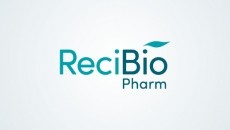SCOLR advances clinical projects
its candidate decongestant product based on pseudoephedrine,
keeping it on track to start clinical trials early next year.
The company has contracted UPM Pharmaceuticals to make the tablets, based on SCOLR's Controlled Delivery technology (CDT) platform. This will maintain pseudoephedrine at therapeutic levels in the body for 12 hours from a single tablet.
The first supplement using the technology - a nutraceutical product based on the joint health ingredients glucosamine and chondroitin - was introduced in Canada in 2002. Since then, SCOLR has launched a number of other CDT-based nutritional products to provide near-term revenues. But its long-term strategy has been to reposition itself in the pharmaceutical sector, as it sees more commercial potential in using CDT for pharmaceuticals.
SCOLR started human studies on a 12-hour CDT formulation of the painkiller ibuprofen - also manufactured by UPM Pharma - in September. The firm is also working on CDT versions of tramadol (an analgesic) and niacin (vitamin B3). Together, existing formulations of its four lead compounds currently generate $3.5 billion (€2.9bn) in annual sales.
SCOLR also announced encouraging preliminary results from its initial review of interim data from the first two of five dosing periods for CDT 12-hour extended release dosage form of ibuprofen. A comprehensive analysis of data derived from the completed study is expected to be available in November, and if positive SCOLR expects to be able to file for approval of the product in the summer of 2005. There are currently no extended release formulations of Ibuprofen approved for use in North America.
SCOLR's CDT platform is in fact three separate technologies. The first is a so-called 'dual polymer' format, developed specifically for the controlled release of highly soluble active ingredients, such as propranolol, diltiazem, verapamil, theophylline and metformin.
The second relies on a phenomenon called 'salting out' to liberate an active drug alongside electrolytes from a polymer matrix. The primary benefit of this approach is its low production costs compared to rival technologies, such as complex osmotic pump or multi-layer tablets.
Finally, SCOLR has an amino acid platform, deigned to improve the solubility of hydrophobic (poorly-soluble) drugs. This is based on a matrix containing a granulated active ingredient, ionic resins or gums, and amino acids. Upon hydration the hydrophobic drug reacts with the amino acids to form weak complexes that are more soluble and can leach out of the matrix.
This technology forms the basis of a new project, in which SCOLR is developing an improved formulation of raloxifene, a selective oestrogen receptor modulator originally developed by Eli Lilly and used to prevent and treat osteoporosis. Lilly sells the drug as Evista.
In 2003, Lilly reported $922 million (€738m) in global Evista sales, a 12 per cent increase over 2002. SCOLR Pharma expects to commence human trials in the second quarter of next year and estimates it will file an Abbreviated New Drug Application in late 2005 for an immediate release product.








